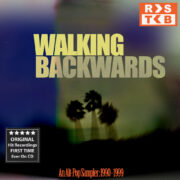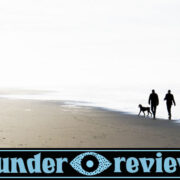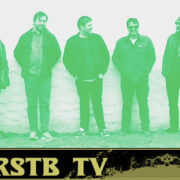2023 Favorites (So Far) 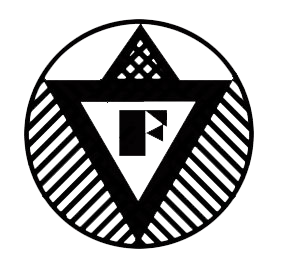

No knock on the last couple of years, but the bulk of music that’s been released in the first half of 2023 has been particularly excellent. It was truly hard to whittle this down to the mid fifties as far as quantity of favorites to highlight. The seclusion of the past few years has given way to a wellspring of music from site favorites and a tour schedule that’s keep me busy trying not to miss these records unfolding on stage. As always, the list is unranked and non-quantitative, representative of albums that spent the most time on my personal speakers over the past few months. The list spans through the end of June, so a few records are included even though they’re not out for a week or two. The second half of the month has some essentials that were just too good to cut. It’s already shaping up to be a heavy and heady second half of the year as well, so get prepared for that year-ender to be twice as long.

Anna St. Louis – In The Air
In The Air flutters out of the speakers soft and supple — a silk scarf caught in the wind. An exercise in quietude beaming an aura of comfort from speakers, In The Air is the sound, not of settling, but of realizing that someplace is finally home. Anna creates a campfire light flicker of hope hung heavy with mountain air. Her vision of home is hard to resist, and even easier to return to again and again.

Bart – Some Kind of Way
From the stutter-funk staccatos of “Turncoat” to the shout-along slashes of “Forced Perspective,” the album pushes the band away from their previous silken sway and towards the kind of patchwork exploration of the sound that sutured the ‘70s together. The newest ripple is the rise of a psychedelic jazz component. Threaded throughout the album are works that find the band joining contemporaries Possum, Badge Époque Ensemble, and The Cosmic Range in straddling the lines of jazz and psychedelia. It feels like a turning point for the band, pushing past their ballads and into a headier fusion of sounds.

Bill Orcutt – Jump On It
Immediacy has always played a part in Bill’s works, but less so intimacy. While the familiar spark of entropy remains in the works here, there’s also a sense of Orcutt drawing the listener close and letting down a barrier that’s long been lifted. The recordings are bare and open, littered with the sounds of fingers on frets and the cadence of breath. There’s nothing hidden away. What sounds swirled the room are caught in the curls of tape. The pulse of the platter still beats with an irregular itch, but the exterior radiates a newfound colloquy with calm.
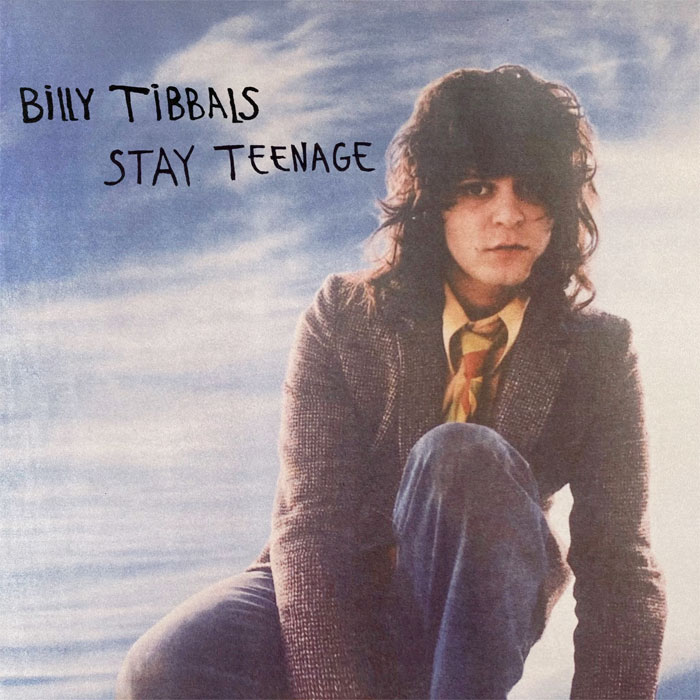
Billy Tibbals – Stay Teenage
The theme of love gone sour remains pretty prevalent in Tibbals’s songs, but what kind of power pop album would be complete without jilted lovers and lascivious lads. The band slides into a sound that balances the snottiness of The Quick with the satin pomp of Sparks. His love for the former comes out most completely on a non-single standout, “All For You,” which balances the flippant flounce with a crushing guitar hook. Tibbals is exacting in his exploration of ‘70s excesses, imbuing the EP with a dramatic flair, a libidinous pout, and a glamorous sheen.
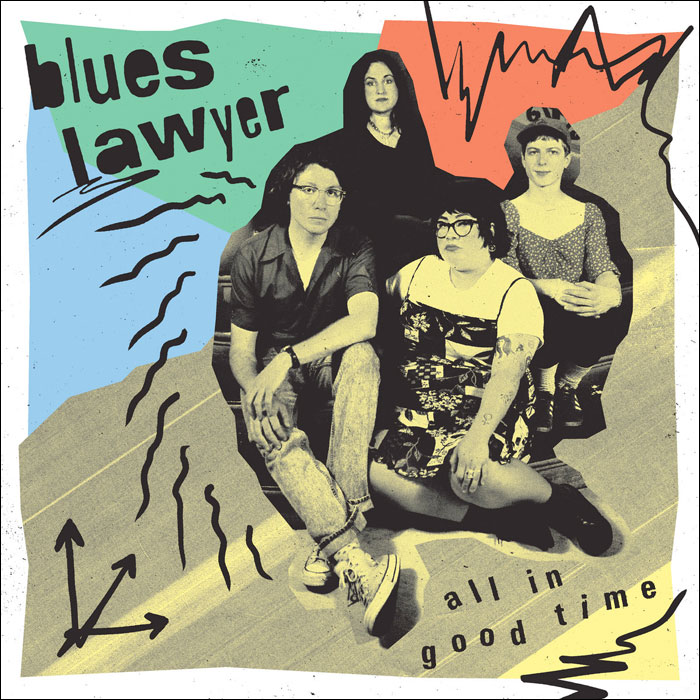
Blues Lawyer – All In Good Time
The band has thickened their sound in the past few years, moving from something of a side project for Elyse Schrock (The World, Pang) and Rob Miller (Mall Walk, Christian Singles) to their main focus. Along with the shift, the band brings the sound out into the air, embracing a broader panorama of power pop and indie alike. The band’s previous albums had something of a homespun charm to them, couching hooks between a roughed-up exterior and tongue-in-cheek demeanor. The new album packs a good bit of gloss and a proper pop punch.

Bobby Lee – Endless Skyways
The Sheffield guitarist has been carving out a niche somewhere between the charcoal choogle of Michael Champman and the fogged morning mysticism of Bruce Langhorne, and on the latest LP Lee takes up as a trio with members of Slowdive in tow, channeling ecological ennui through boogie-bred burners. The record is a bit more scorched than the bulk of his back catalog, chugging on heady hues and exhuming more than a few sordid spirits from deep under the desert’s crust.

Cindy – Why Not Now
The collective spirit on Why Not Now pulls Cindy from the shadows. There’s still a feeling of stillness and solitude that could never really be shaken from Gill’s works, but with somber viola, layers of guitar, and backing vocals, the seclusion feels more like refuge than withdrawal. Gill’s songs are more than just muffled musings as might have been inferred from early works. Beneath the calm and composed exterior pop touches cross in intricate stitching.
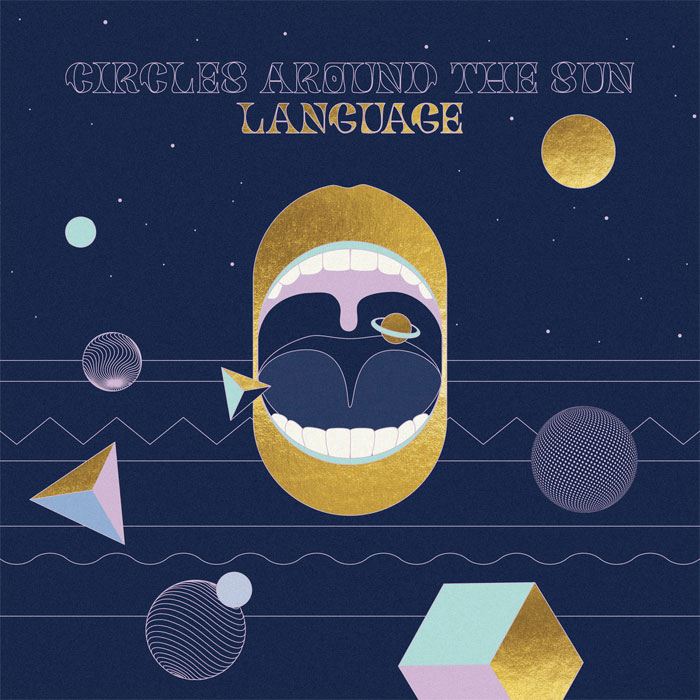
Circles Around The Sun – Language
On Language, the crew digs further into a firmament of ‘70s prog, with dips into Yes, Soft Machine, and in particular Meddle-era Pink Floyd. The keys of Adam McDougal have become a hallmark of the band. Long a studio head who’s been included on works from The Black Crowes to Macy Gray, his sound lately has begun to lodge nicely into the exploratory grottoes of the ‘70s prog/psych canon. The band continues to tend the topiaries carved and curated by Medeski Martin and Wood and Herbie Hancock, consummate fusionists as always, while eyeing every expansive angle cropped from the ‘70s kaleidoscope.
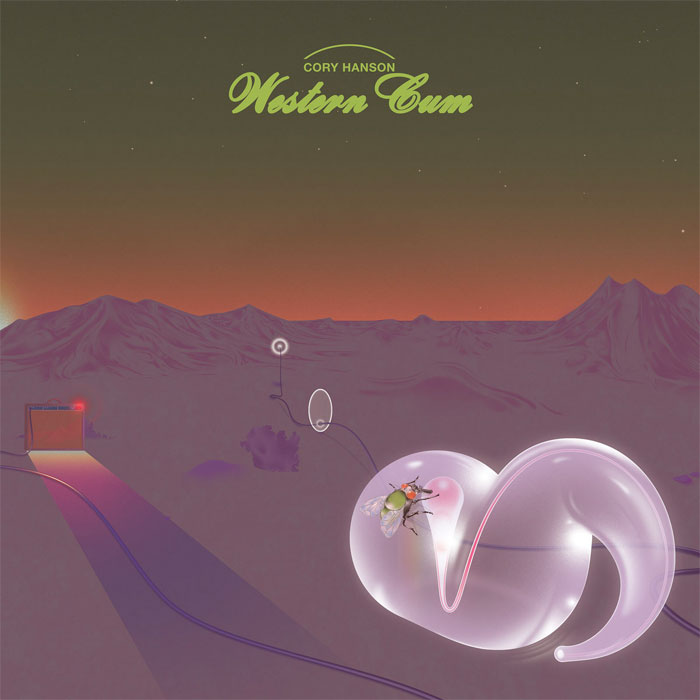
Cory Hanson – Western Cum
On Western Cum the lonesome lilt has been met with a heady surge of guitars, more Crazy Horse this time than Skip Spence. Scuttle those expectations for soft country croons as this one is a gnarled sucker punch to the solar plexus — an hooked on the edges of Americana, but embracing the prog prickles of his work in Wand, finding an exploratory valley between.
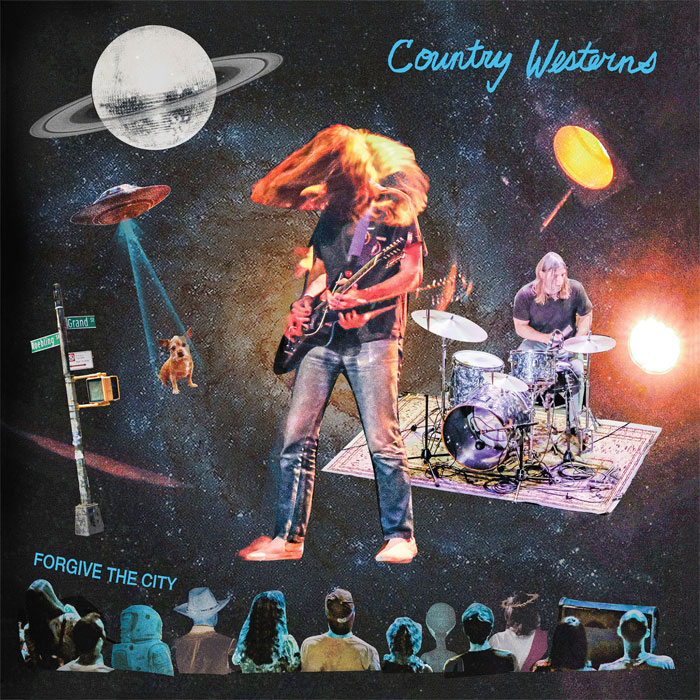
Country Westerns – Forgive The City
There’s something intangible about Country Westerns vision of rock. It’s raw, frayed, like an abrasion that refuses to heal. Cover it up, cast it aside for a moment, but there’s always a bit of burn to remind you of its presence. The band’s sound is lodged between southern rock and a long shuttered ideal of indie, leftover from the Dutch East India days. On Forgive The City, Country Westerns offer up the kind of classic that would have rattled out of cassette decks in every college town and soundtracked the jukebox on a hundred last call clean-ups. It feels like an album that’s already lived ten lives and it’s not bound to leave the turntable around here for the whole year.

Danny Arakaki – Tumble In Shade
The record has a feeling of a weeklong studio exchange of ideas, an egalitarian vision of ‘70s excess that’s more grounded for its aversion to myopic minds. This is a clear-headed No Other as written by the ensemble, not dictated from the songwriter’s pulpit. The hole left by Malach and Spaldo is filled by Mike Bones (Endless Boogie, Weak Signal) and his leads add a growl that’s often come forward in his own work. The guitar hackles are tempered by a liberal dose of pedal steel by Dan Iead (Broken West, Jess Williamson) and keys from Winston Cook-Wilson. The pair provide an airbag of ambiance for the others to fall into at any moment, shading in the edges with amber hues and lavender swirls.

Doug Paisley – Say What You Like
Like his last record, Doug Paisley’s Say What You Like is threaded with a weathered quality — cracked and oiled like leather, rutted deep like bar wood, worn through like flannel that’s been patched and re-patched. Where the last record was steeped in a smoke-halo of heartbreak and a sunken-hearted urge to be made whole, there’s more of a free spirit to this one. Paisley’s songs move you through the day with a wry smile, but they leave the listener weathered as well. There’s no getting out of Say What You Like without a mark.

Drew Gardner – Flowers In Space
The record sharpens the impulses that arose on Drew’s Eiderdown tape, spreading out into four longform pieces that offer up a hazed vision of exploratory psych and heady, hazed post-Dead jazz. That Raccoon Records, and Joe Bauer in particular, again come up as a touchstone this year only serves to prove the longevity of that lost classic. While Flowers In Space is nowhere as shaggy as Moonset, it does share its low-slung touch — a quality of feeling like it’s constantly coiling, letting off the tension to almost spring, but never quite fully embracing the entropy.

Edena Gardens – Agar
Feeling like an extension of their eponymous debut, Agar again finds the members of Causa Sui, Papir, London Odense Ensemble, and Sun River assembling for a record that weaves its intentions between Chicago post-rock textures and crystalline psychedelics that carve up light into painted kaleidoscope patterns. There’s an aqueous aura to the album that feels right at home in the deep blues and aquamarine swirls of the album’s cover.

Elkhorn – On The Whole Universe In All Directions
On The Whole Universe In All Directions finds the band’s Drew Gardner returning to his jazz roots, weaving a tapestry of vibraphone among the acoustic nests built up by Jesse Sheppard. The pieces grew out of a set they’d done for the Psychedelic Sangha series of guided meditations. While in the studio among Drew’s assembled instruments the idea struck for some vibraphone and 12-string duets and the pieces began to flow forth from the pair. Letting the scorch of Drew’s electrics fade away from view, the pair invite a new tangle that ripples like liquid and shimmers like glass.

Emergency Group – Inspection of Cruelty
Straddling the lines of krautrock and free jazz, Brooklyn outfit Emergency Group culls members from Plates of Cake, Tone Poets, and The Jazz Marauders.The band pushes their sound past the ‘70s psychedelic nodes of the free set and into something more rhythmically rooted in the German Progressive tradition. Locking into Brade’s drumming and Mandl’s bass as anchor point, the band creates a springboard to truly let the guitar and keys work of Jonathan Byerly and Robert Boston explore the outer points of the map.
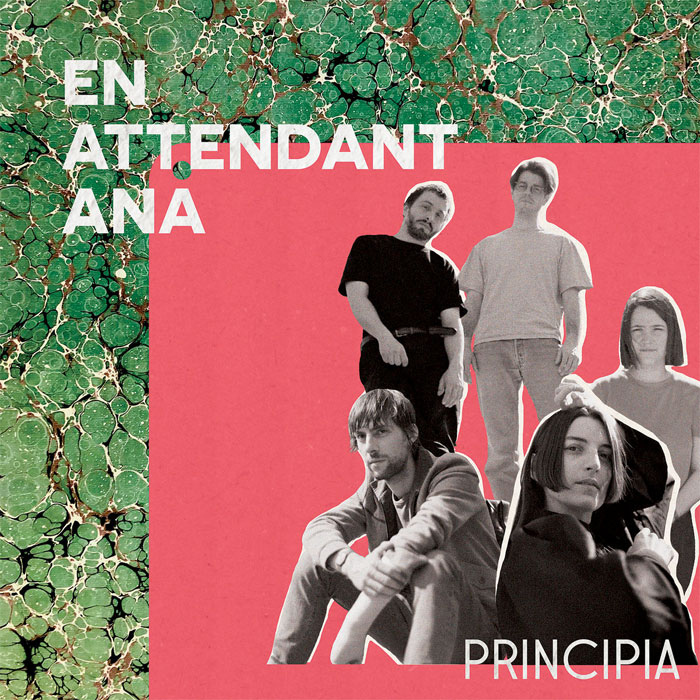
En Attendant Ana – Principia
On their latest album, Principia, Parisian band En Attendant Ana swing towards a classic pop sound, culling rhythm and aesthetics from heroes Broadcast, Electralane, and Stereolab, while still keeping things tied to their breezier indie pop past. Principia is an album that’s constantly worth going back to, a pop puzzle full of corridors, nooks, and niches for the listener to explore.

Eric Silverman – Stay In It
Stay In It embraces a West Coast eclecticism, tying together knots of psych, Americana, prog, and country. It’s the kind of album that’s fueled by late nights, long drags, lean years, and an unyielding vision, staring down perfect sounds and carving out quicksilver classics through the haze. Yet, the album marks a cut with that past, a jettisoning of the city, a move to the desert, an embrace of family, and a need to get the whirlwind of the previous years to tape.
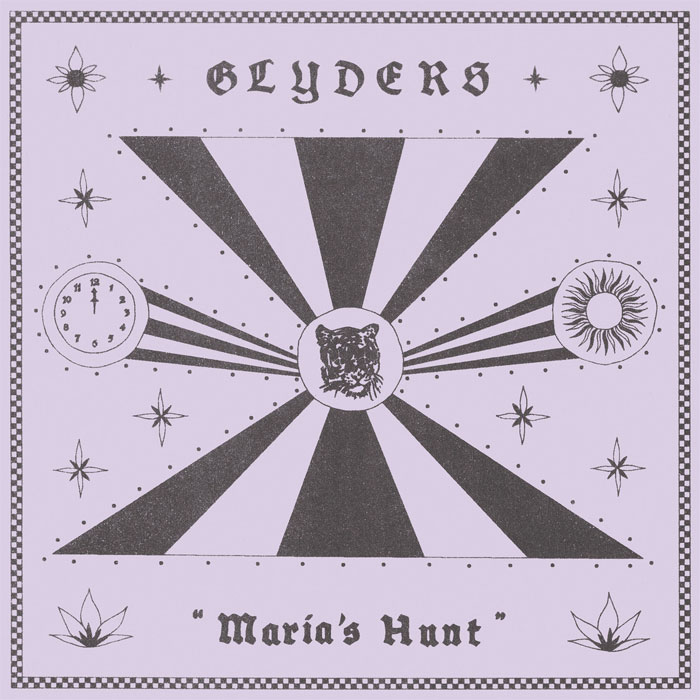
Glyders – Maria’s Hunt
As they crest into the creases on Maria’s Hunt, the band finds a nebulous balance between stripped n’ strangled garage beaters, a bongwater bath of stoner grooves, and a hazed saunter of cosmic country. The record plays like the jukebox at the best backwater bar, deftly swapping between a narcotic haze that flickers in time to the broken bathroom lights and the stench of sweat off the dancefloor.

Hollow Hand – Your Own Adventure
Your Own Adventure spins the dial between psych, country, folk, and indie, never shying away from robust production. Like a one-man Elephant 6, Kinghorn-Mills laces his psych-pop with backwards guitars, flutes, and synths. Hollow Hand’s works don’t linger in whimsy, but there’s always a sense of sparkle clinging to the edges of Max’s pop odes. As the album plunges deeper, hypnotic outros consume the listener, nodding a bit to the layered pop of Super Furry Animals. The country touches creep in subtly, but balance the record with a road-worn rumple.

Human Hand – Tremor
The band embraces the German Progressive pulse, wielding rhythm and fuzz with an intensity and hunger that can sometimes elude seekers of the genre. While the band can slide onto the shelf alongside some newcomers to the Krautrock canon, like Minami Deutsch and L’Eclair, there’s a darker current that runs through Tremor. Hollick’s playing was always a highlight of Wolf People, and he brings a similarly stunning heft to Human Hand. A gnarled gem that found its way out last year in the UK, but took its time hitting US shores, making it just slide into the list for this year’s essentials.

James and the Giants – James and the Giants
Slipping on a new name once again, James Jackson Toth (Wooden Wand, One Eleven Heavy) carves out an album out of new songs and reinterpretations of older works. Along with a few friends and Jarvis Taveniere (Woods) in the producer’s chair, the album finds itself settled between Wooden Wand’s later works and the JJT solo record. Shaped by Taveniere with swells of strings and layers of background vocals, it’s the most cinematic and tender that Toth has sounded to date climbing up the ladder of Toth catalog essentials.

Jeffrey Silverstein – Western Sky Music
Silverstein continues to sling twang with the painterly grace of brush against canvas and the new set of songs open up purple-skied vistas that were only hinted at on his early works. Guest spots from William Tyler and Karina Walker compliment Western Sky Music‘s ranchhand ramble in rotoscope, sending the listener into slow-motion spells of color and light.

Jess Williamson – Time Ain’t Accidental
Last year’s stint with Plains elevated Williamson to more of a household name, and with good cause. Her duo with Katie Crutchfield captured a the dusk light between country and indie, creasing their compositions with the claustrophobia of small town life and Western desperation. Those themes bleed over to her new album, with some of the standouts here feeling like they could have easily found their way alongside Jess’ works in Plains. Her last album was a quiet, smoke-hued gem, and this one dashes out into the light.
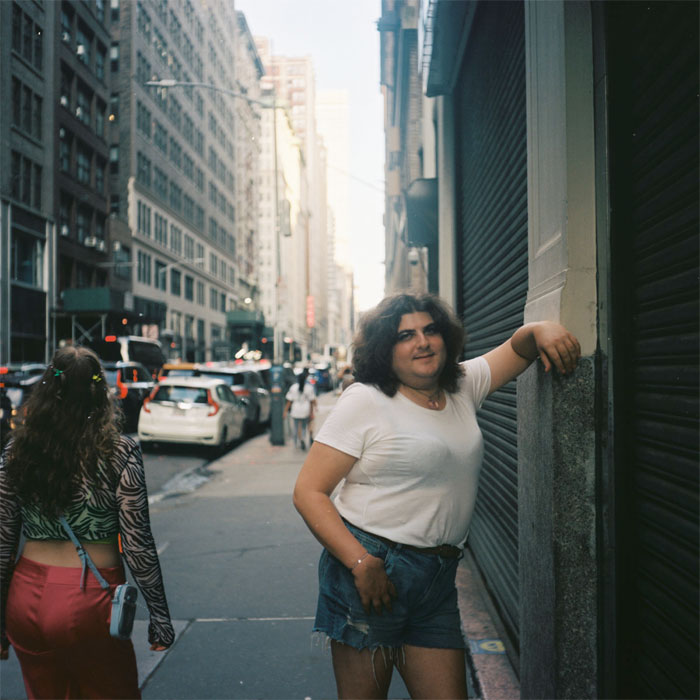
Josephine Network – No One’s Rose
The record opens with the most affecting moment, the acoustic ache of “All There Is To Say,” and the tonal shift sets up the listener for the departure from Josephine’s past. As the record opens up a bit of the ol’ Bolan bounce sneaks in at the edges, but there’s nowhere near the kind of crunch that found its way into her past works. It’s a bold shift, but the gamble pays off nicely with some of Josephine’s best songs yet.

Kassi Valazza – Kassi Valazza Knows Nothing
Finding her footing on her new album, Northwest songwriter Kassi Valazza pairs with friends from TK & The Holy Know Nothings to plumb country, Canyon Folk, and British Folk alike. With an ear towards a trip into the ‘70s, Valazza’s songs are equally at home in the jukebox jumble next to Linda Ronstadt, Judee Sill, Fairport, and Trees. Blending her roots in the Southwest with a more expansive indie ripple, picked up from her adopted Portland home, Valazza’s album proves more nimble than the average country crooner.
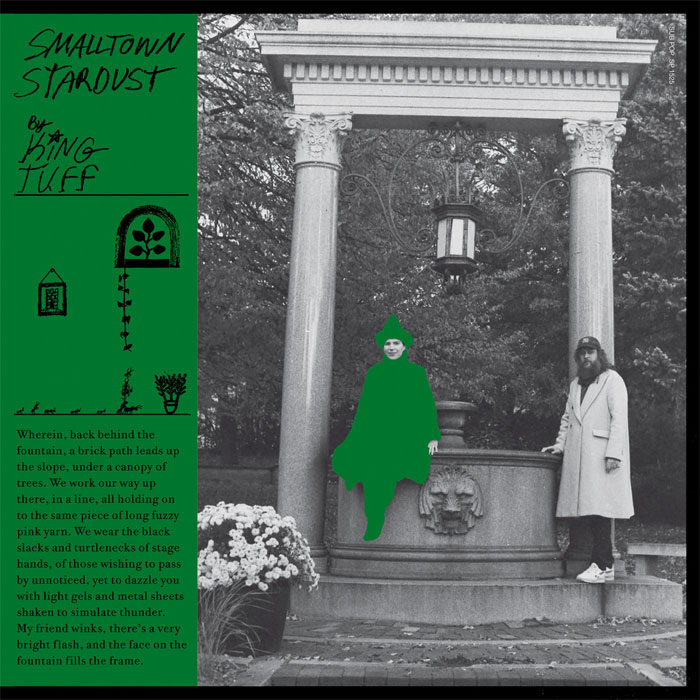
King Tuff – Smalltown Stardust
Smalltown Stardust sees Thomas evolve once more, fully embracing the pop elements that crept into The Other with production help from Sasami, who’s lent a dynamic snap to her own works along with Hand Habits in the past few years. The guitar still pervades, providing a glam crunch to many of the songs, but it’s no longer the only driving force. Layers of drums, strings, and Thomas’ voice feeling comfortingly close mic’d and confessional mark the new record. The dichotomy of the album’s grandiosity and the lyrical longing for the townie tenure push against each other, creating a tension that resolves somewhere in upper echelons of Tuff’s velour pop wonderland.
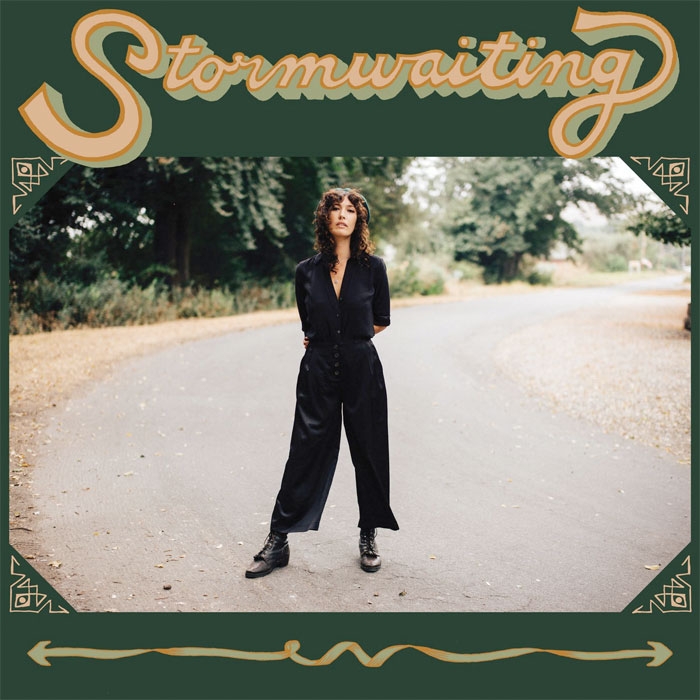
Lauren Barth – Stormwaiting
A good touchstone for the album is Bert Jansch’s L.A. Turnaround. Like that album, it’s stuck between the poles of L.A. and London, shrouded in flutes and fingerpicked passages, but sweating out the smog and soot of West Coast twang in tandem with those cold English winds. The influence of Pentangle and Fairport can be felt, but they remain an undercurrent that’s submerged in the dust of the West. The album keeps an eye on Crosby’s If Only I Could Remember My Name, Joni’s Court and Spark, and Buckley’s Greetings From L.A. Like those records its a distinctly West Coast album, salt air mingling with the smoke.

London Odense Ensemble – Jaiyede Sessions Vol 2
Where the first volume finds the ensemble working in longform pieces that focus on the dynamics of the combo, dodging Osborn’s flute lines and injecting a sense of Hancock-indebted funk to the mix, the second stretches the ideas of psychedelic jazz. There are still plenty of moments that draw blood like the first record, but Vol 2 is a more exploratory record, unfolding in often surprising directions that trickle into the far corners of the listener’s brain.

Featuring the bulk of Joys Union Group, the record comes from improv sessions between Mike Sharp (Sungod, Remember Ecstatic Duo) and Neil Lord (Future Museums). The pair dig deep into the tapestry of cosmic folk, letting layers of Popul Vuh, Pelt and Gastr Del Sol wash over their works, and finding themselves in good company with contemporaries like Elkhorn. Passing the 12 and 6 strings back and forth between them, the record opens into resplendent vistas of sound, sunrise seascapes that echo, weave, and wash over one another.

Magic Tuber Stringband – Tarantism
Like fellow Southern folklore figure Daniel Bachman, the pair have reflected the turbulence, violence, and uneasiness of life in 2023 through a contrast of American traditional song with a thread of corrosive discomfort. The record finds the duo expanding their palette quite nicely and cementing themselves among a growing number of artists reaching into the American past, dragging mirrored shards into the light and reflecting a schism of promised ideal and broken promises.

Marlene Ribeiro – Toquei No Sol
The works on Toquei no Sol transport the listener from their terra firma foundations altogether, invoking a kind of astral plane incubation. Ribeiro’s (Gnod) compositions let their intentions wander, anchored by rhythmic pulses but letting the rest of the album’s aural projections flicker with a dream-like looseness that drifts between obfuscation and lucidity. The record snakes through snatches of field recordings that capture the green dampness of leaves and dirt, audio of Ribeiro’s Portugese grandmother in her kitchen, scarred brass, sinister synths, hand drums, and her own hazed vocals.

Matt LaJoie – On Garudan Wing
Matt LaJoie’s latest reverberates off of the sky in sparkling waves. Like their elemental counterpoints, this piece feels like a compliment to the works on Everlasting Spring, Matt’s exploration of water from a few years back. The record pushes against the tips of the waves. It spreads rain and returns to the clouds. The album loops and lifts like birds’ wings on wind, soaring through the speakers with a delightful freedom.
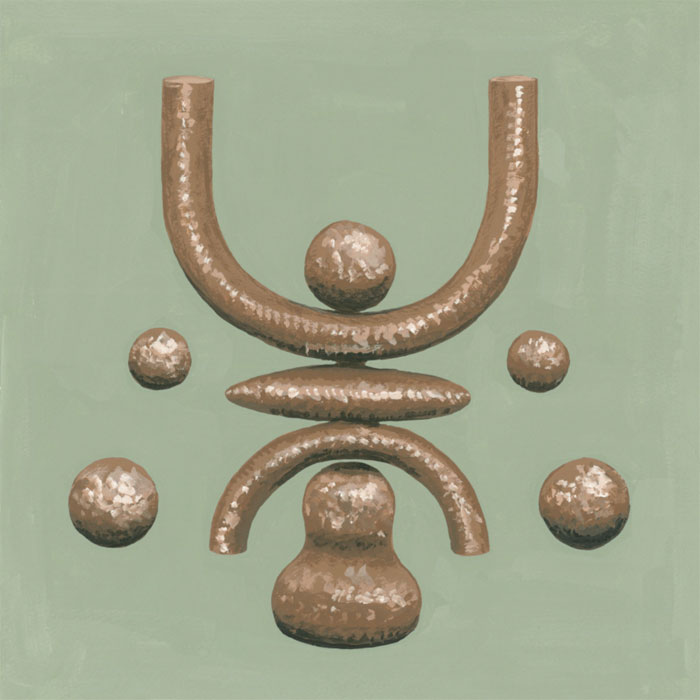
Maya Ongaku – Approach to Anima
The record at times touches on the ‘90s psych-folk movement that took root in Japan — shades of Ghost’s Lama Rabi Rabi or Floating Flower, though it also reflects the more languid works that preceded them like Fluid or Takuro Yoshida. The record is rooted in a groove that’s subtle but steady. Ryota Takano’s bass lulls the listener into a sense of sway as hand drums and soft strums play off the patter of the rain. Fleeced saxes make their way into the mix, cradling the songs, but never overtaking them. The album warms, like tea trickling down the esophagus or the rose bloom of whiskey in winter. It radiates through the body in slow waves, a resplendent record that lets the listener slip between sides of the veil.

Meg Baird – Furling
Furling opens up Meg’s palette, still tethered to the ‘60s Anglican fog of folk that wound around Espers, but thickening up her sound beyond a solo songwriter fingerpicking unadorned. Along with her partner and Heron Oblivion bandmate Charley Saufley, Baird builds the record into a hazy, diaphanous affair, hung with the hallmarks of ‘90s dreampop, ‘60s folk, modern torchlight ballads, and melancholic synthpop pulses. The record wipes away conceptions about Baird’s works, leaving plenty to love for those who’ve long been under the songwriter’s spell, while opening several inviting doors to unfamiliar newcomers.
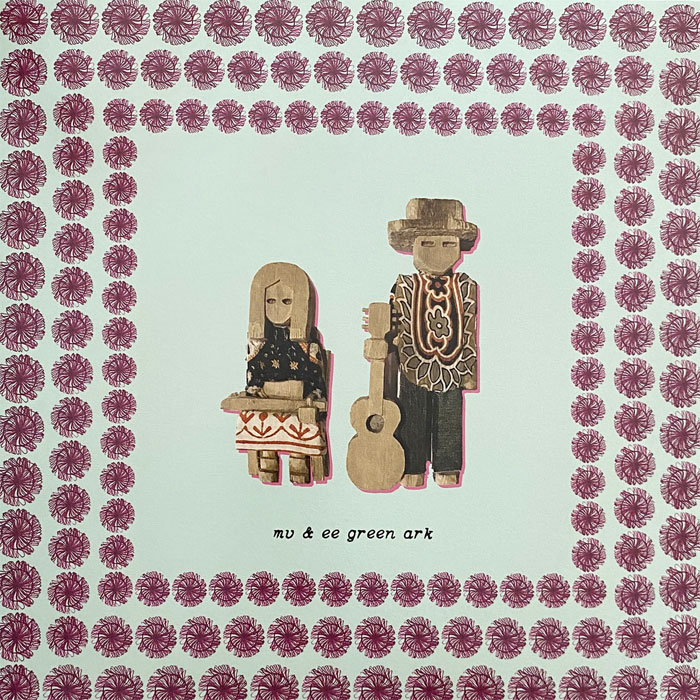
MV & EE – Green Ark
The pair doesn’t prove shy about length on Green Ark, making full use of the gatefold in all its glory. The nearly twenty minute opening salvo “Free Time” isn’t alone in its grip for a runtime record here. The band pushes past the marker once again on the propulsive brain scrub, “Livin’ It Up.” Time is of no essence on board the boat, though. The second platter embraces the ether even more than the first, pushing the listener further and further from solid ground. The chewiness that glued the listener to the grass on the first half dissipates, letting waveforms wobble off of smoke plumes and wiggle through fogged glass grottoes.

Mystic 100’s – On a Micro Diet
With the rise of Cosmic Americana in the last few years, Mystic 100s have tacked their sails into welcoming winds. The record is by turns tender and resigned, with a kind of crumpled weight to it, but it pushes through bouts of ecstasy and humor as well. At times Coxen’s howl feels like Tom Verlaine sitting in on Largeness With (W)holes-era Always August. It’s tied to the SST grit, but vibrating on a parallel grid where grunge got heady and stayed heady. As the album wears on the band moves even further out on the spectrum, finding solace in the darkness and din of Amon Düül or Agitation Free, especially on the 18-minute centerpiece “Have You Ever Chased A Lightbeam?.”

Nashville Ambient Ensemble – Light and Space
Outside of the context of their inspirations as a piece for the Los Angeles County Museum of Art, the songs on Light and Space still enter the nebulous world that Nashville Ambient Ensemble had built previously. Gossamer threads stretch across the headspeace, threading Hix’ synth, Luke Schneider’s Pedal Steel, and Jack Silverman’s guitar passages through the spaces created by Kim Ruger’s Piano and, this time around, Alicia Enstrom’s beautiful violin touches. The soft touch of new wave, the grandiosity of prog, the cosmic caress of Krautrock, and the kinetic feel of jazz all collapse into the heart of a star on Light and Space. What remains is an album that’s billed as background, but pulls the listener into its orbit with a devastating gravity.

Natural Information Society – Since Time Is Gravity
The band’s mastery of hypnotic, meditative works holds fast, letting their collaborators etch ecstatic tattoos upon the listener’s soft tissues as they thread the thrum that steers NIS steady. The core kernel of players build on minimalism, rising and falling with an eupnea that feels in tune with tides. Their sound blooms out of a drone that feels coded in the deepest fibers of player and listener alike. It’s a cosmic anchor that grounds the us to the Terran temperament even as Brown and Sugimoto’s saxes push towards the precipice, tipping further and further into the electricity of the surrounding air.

North Americans – Long Cool World
The new record finds the pair working in wonderful symbiosis, crafting works that feel like they were siphoned from the atmospheres of humid evenings and cold spring mornings. There’s a comfort to the songs’ stillness, a sense of surroundings either just waking or just settling away from perceptible view. The pair let acoustic ramble and sunlit steel lap over one another, shimmering, aching, vibrating deep into the marrow of the listener. The last couple of records from North Americans have all been meditatively gorgeous essentials, but they seem to be setting the stage for the inviting ache of Long Cool World.

The Pink Stones – You Know Who
Pinkston and crew excel at turning heartache into hangdog keepsakes, curios of crushed dreams lacquered in the band’s slow-sauntered vision of cosmic country. The last album split its run between the soft-hearted swooning that dipped their works in a sunset glow and a good dose of barroom belters. The new record finds itself running the same balance, vamping into the room on a country-funk foundation and laying down a torn and frayed tale of love gone sour with a bit of acid on its tongue. The band continues to keep the current crop of country interesting.
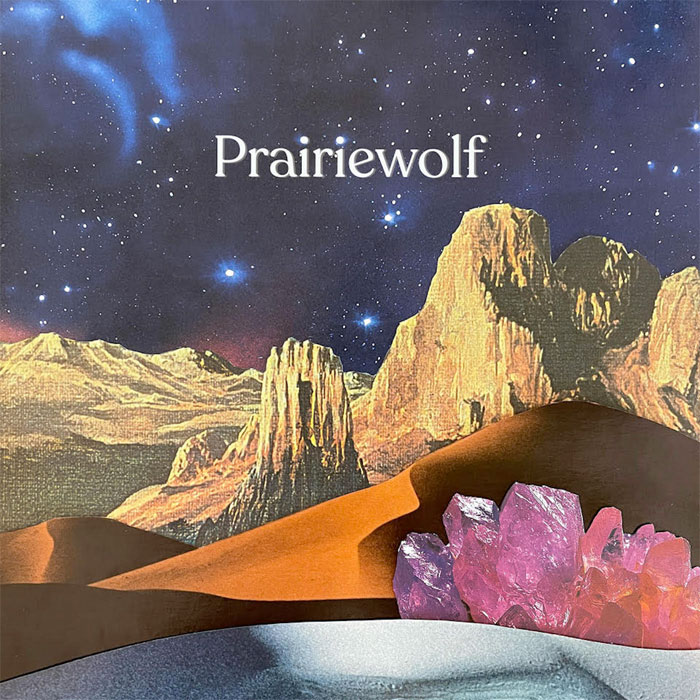
Prairiewolf – Prairiewolf
The band’s debut LP captures the pocket zeitgeist of Cosmic Americana, Kosmiche, and ambient country that’s been stirring over the past few years. While that scene’s voracious scope is a proper touchstone and launchpad into their world, Prairiewolf’s eponymous LP can’t be as easily contained or codified as simply an ambient country record. The trio employ the open psychedelics of Don Cherry, the mechanical shudder of A.R. & Machines, the Western expanse of Earth’s Hex, and the spiritual yearning of Alice Coltrane.
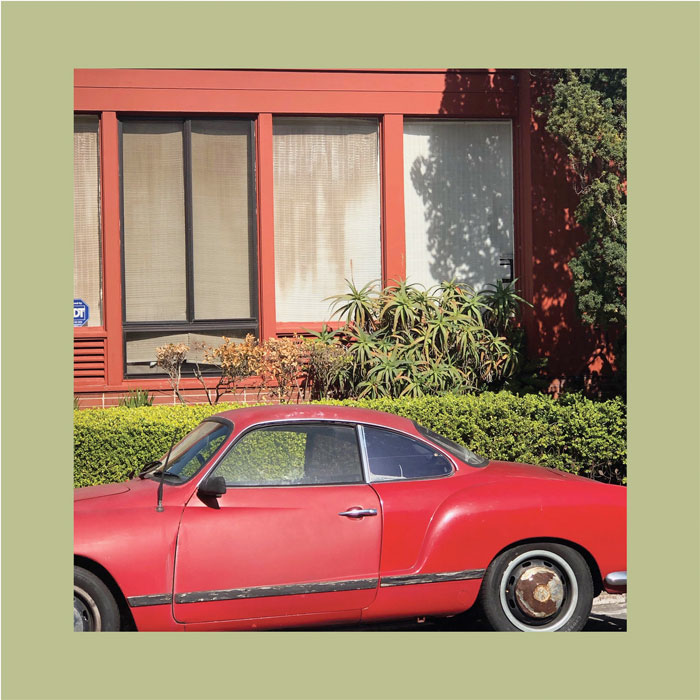
The Reds, Pinks and Purples – The Town That Cursed Your Name
Glenn leaves behind some of the gauzy bliss of Summer At Land’s End for a record that’s intrinsically tied to his home in San Francisco and the encroaching struggle to remain in a city increasingly hostile to artists. The sounds beneath the struggle for the survival of soul are still buoyed by Glenn’s love of ‘80s and ‘90s indie pop. The Homestead and Sarah stables take their fair share of the weight, while The Go-Betweens make a larger stake this time around. The smudges and rosy blurs of the last album are eaten away by more prominent fuzz, a bubbling irritation beneath Donaldson’s dreamy exterior. The bubblewrap snap of drums quickens its pace, while Glenn ponders failed labels, wanting more than minimum wage, and scuttling it all in frustration.

Rose City Band – Garden Party
At its core, Garden Party embraces the choogle-charged, sun-baked flow of Cosmic Americana. It’s a record practically positioned to elicit a smoke-ring smile, but amid the ramble of mid-set burners like “Porch boogie” and “Slow Burn” there’s also a melancholy streak this time around. Rip’s heart sighs and the tones turn to lavender and purple as “Saturday’s Gone” drapes its cold spring comedown around the speakers. There’s never been a miss in the RCB catalog, but its been great to see it evolve from private press home sessions into a modern-day New Riders.

RVG – Brain Worms
Hung on the same iridescent ache that informed indispensable works from Echo and the Bunnymen, Kate Bush, Siouxsie, The Psychedelic Furs, and Talk Talk, the record rifles through discomfort, an inner itch that refuses to resolve. Scenes of sour endings, body horror hallucinations, Skype funerals, Astrology, and the inexorable toxicity that infects our every thoughts, permeate the record. Vager remains one of rock’s most enigmatic voices — her powerful delivery nailing every knotted emotion into the listener with a razor-tipped precision.

Shana Cleveland – Manzanita
Manzanita is a distinctly West Coast record, but not in the sense of sunshine and sea breeze. Instead, the album is framed by the night, the canyon air, the weird magic that seems to hover over portions of the West. As with the first record, she’s reframed the inertia of surf into something nocturnal and adrift — a mirror image scene of serenity, a mapping of the undertow.

Spencer Cullum – Spencer Cullum’s Coin Collection 2
The previous album feels like the building blocks to what’s happening on Coin Collection 2. It remains a record rooted in the fragrant, perfumed vision of English folk, but Cullum’s voracious intake of influences stretches the record far beyond homage or affectation. The record succeeds in becoming more than just an English folk record with a solid Nashville undercarriage, turning into a folk fusion classic for the current age.

Stella Kola – Stella Kola
The album is steeped in the captivating folk of Linda Perhacs, Judee Sill, Karen Dalton, and Bridget St John. The latter is perhaps the most apt, as the record evokes Song for the Gentle Man, bolstering Ketch’s songs with an array of instrumentation from friends, including Wednesday Knudsen’s Flute, P.G. Six on harps, various keys, and guitar, Gary War on synth, Jen Gellineau on viola and violin, and Willie Lane and L. Gray on guitar among others. Ketch and Thomas lace the songs with more than just the heavy fog of English ‘60s. The best records from that era also carried with them an inherent sadness and Stella Kola’s songs wash over the listener with a beautiful woe.

Sunfruits – One Degree
Sunfruits work a patchwork pulse through their debut album, stringing their soft spots together with silk thread. ‘60s sunshine psych harmonies slide against the satin stomp of glam. The hedonistic throb of ‘90s rave-pop crossover crops up, as does the indie-psych smile of the early aughts. On more than a few occasions, the hallmark that comes to mind is Super Furry Animals, but the album shares appeal with newer psych stalwarts like Temples and Unknown Mortal Orchestra, feeling like its the first step before the band hits wider acclaim.

Sweat – Who Do They Think They Are?
Drawing from the heights of ‘70s excess, the band mixes a towering arena rock sound with equal parts prog and glam. At times reaching the stadium-swelling sounds of Heart, Pedrazzi’s voice is the gale force that guides the album, drawing on the power of the Wilsons, Pat Benatar, Geddy Lee, and Joan Jett before her. Behind her tempest, the band also scan the dial for past influences, proving just as potent on the cathartic pounce of the glam-punk powered “Jane” as they do on the moonstone swirl of “Dark Horses (White Lies).” The band finds solace in the organ-led impulses of Deep Purple and The Moody Blues. They dig into the working-class clout of Thin Lizzy, but also find themselves reaching for the premium chrome sheen of studio smiths like Boston and Rush.

Terry – Call Me Terry
Terry pick up right where they left us — offering up jangled and jilted pop that’s strained through a wobbly post-punk filter. Guitars strum and squirm, sparring with itchy organs. The band layers in strings and horns, but as an antithesis to the kind of pristine pop that normally implements such accoutrements, Terry add them to their menagerie of home-brewed mayhem. In the past a slight lacquer of these elements has cropped up, but never in such prominence. The shift pushes the band out of their wrangled-punk bunker, spilling out into the streets, turning pop pirouettes under a wrinkled sun.
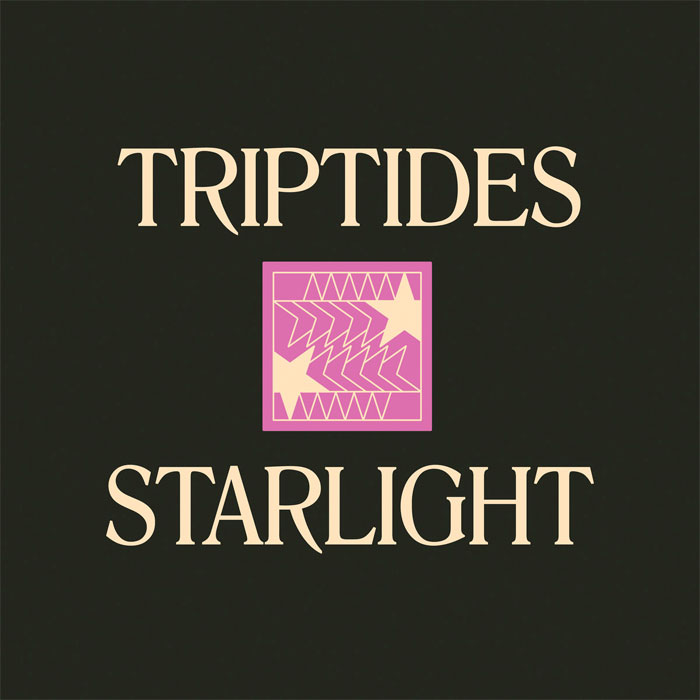
Triptides – Starlight
The band sticks with the decade of decadence as their blueprint, but leaves behind the dust and dreams of West Coast cowboys and Canyon troubadours. Triptides embraces a disco skitter behind the kit, sliding deftly between the towering heights of modern psych-pop and a cream-crushed dose of blue-eyed soul doused with a touch of Yacht-rock’s gloss. It’s as close as the band has come to a full-tilt festival filler. Running on wisps of Gaucho and Takin’ It Easy, the new album feels more meticulous than anything in Triptides’ catalog. If you held the notion of having Triptides typecast, Starlight is here to shake those assumptions.

The Tubs – Dead Meat
The new album embraces the band’s love of UK folk as much as that of Homestead-rooted ‘80s indie. Due in no small part to the similarities between their voices, the band often feels like they’ve jostled a live-wire of post-punk into the works of Richard Thompson, reaching back towards Fairport, but more often touching on this solo repertoire. Like fellow janglers Jeanines, the infusion of folk with the fumes of ‘80s indie pop feels like a proper look back at those who’ve beaten that path before them. The works on Dead Meat feel less like a band emulating ‘80s than a masterclass in method acting, turning those original influences into vibrant splashes of pop.
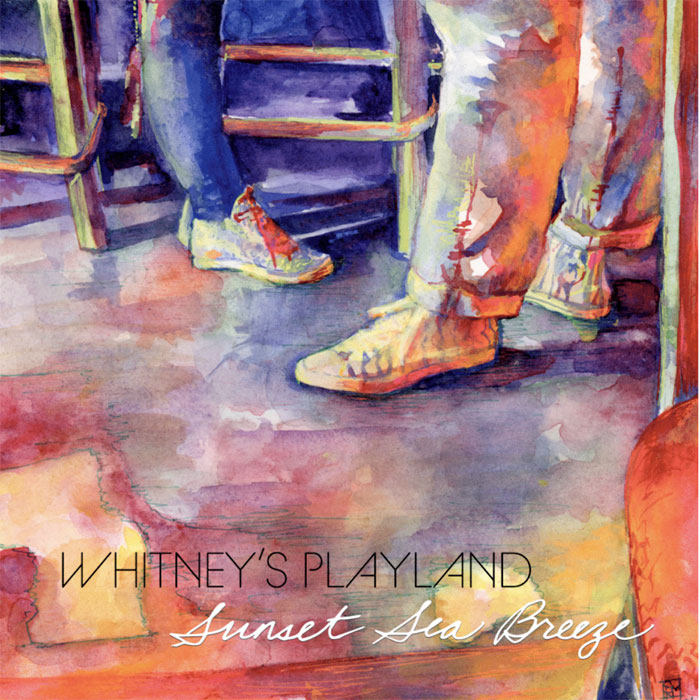
Whitney’s Playland – Sunset Sea Breeze
Whitney’s Playland come as close as any these days to making jangle and strum feel like a timeless art. While they certainly bring a few bands to mind like Yo La Tengo, Heavenly, or The Sundays, what really ties the band to those touchstones is the feelings they evoke. Gauzy, but not gluey, carefree, but not frivolous, the band comes on like a perfect breeze on a summer’s day. Each listen through the album reveals another song that could be a hit if radio dipped into deeper pools.
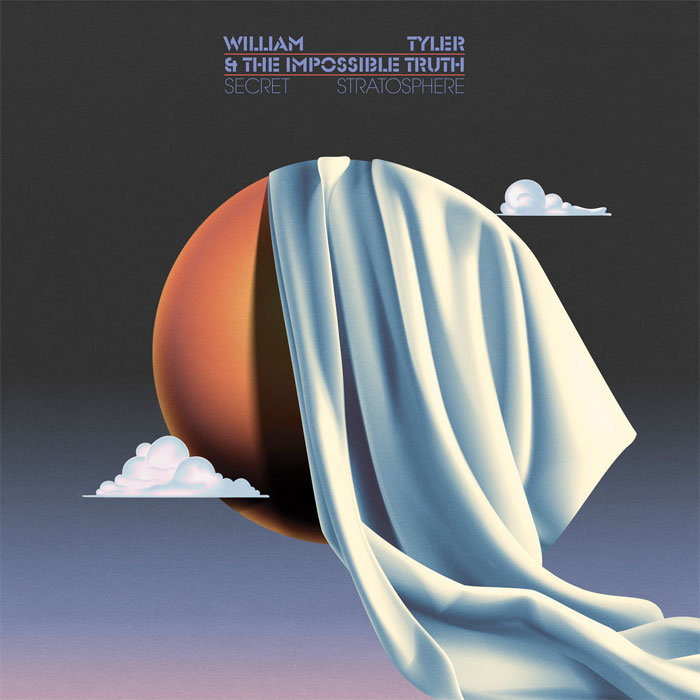
William Tyler & The Impossible Truth – Secret Stratosphere
I’m always in line for whatever Tyler’s serving, but I while I might have expected a thickened turn towards Cosmic Americana, the embrace of Space Rock is a nice surprise. He’s splitting sonics between Hawkwind and Rose City Band on a new record with The Impossible Truth. The band is built on the bones of Nashville ringers, with steel guitar great Luke Schneider (Margo Price, Teddy & The Rough Riders), Bassist Jack Lawrence (The Raconteurs, The Greenhornes) and drummer Brian Kotzur (Country Westerns) filling out the lineup. The band laid the record down live at Yellowhammer Brewing in Alabama, but the dynamic between the players feels as honed and harnessed as if it was meticulously worked out in the studio.

